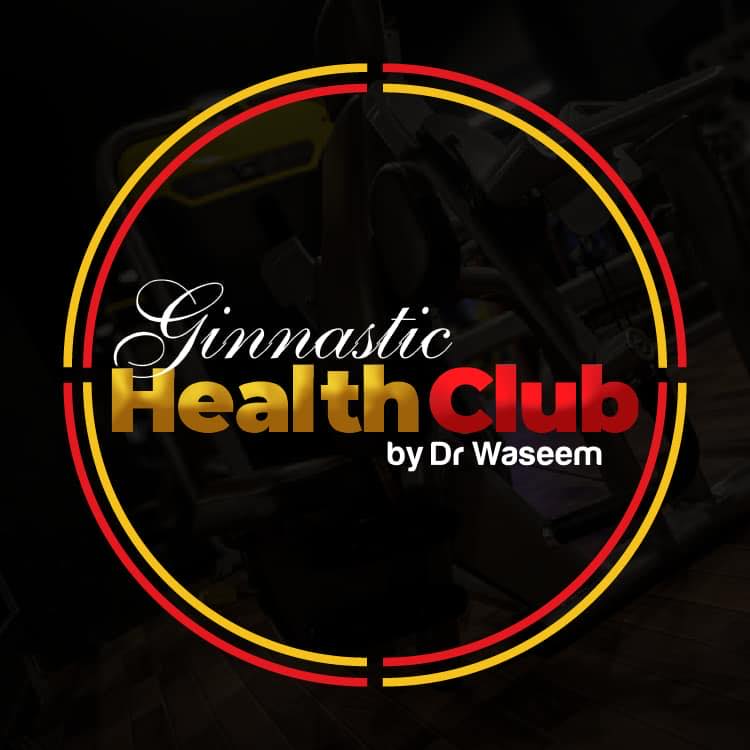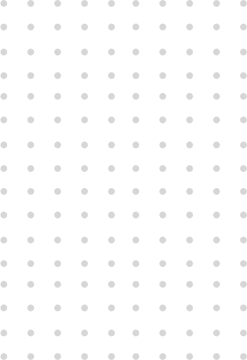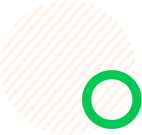High Blood Pressure
High blood pressure, medically termed hypertension is the pressure of the blood exerted over the walls of blood vessels. A constant rise in pressure against the arterial walls has various detrimental effects on the body so named as “silent killer”. It remains unnoticed for years leading to cardiovascular disorders.
Hypertension is measured by the volume of blood pumped by the heart and the degree of resistance faced by blood in arteries. Narrowing or constriction of arteries leads to rise in blood pressure. It is recorded in millimeters of mercury ( mm Hg). it has two readings indicating.

Systolic Pressure
The top number mentioned in the reading shows the pressure in the arteries while the heart beating.
Diastolic Pressure
The bottom number mentioned in the reading shows the pressure in between heartbeats.
Blood pressure is noted as 120/80 mm Hg.top number over here is systolic and the bottom one is diastolic.
Stages of Hypertension
Hypertension is categorized into a few stages, which are mentioned below.,
- Normal:
120/80 mm Hg
- Elevated:
120-129 /less than 80 mm Hg
- Stage 1 hypertension:
130-139/80-89 mm Hg
- Stage 2 hypertension:
140 and above / 90 mm Hg and above
- Hypertension crisis:
180 /120 mm Hg. It’s an emergency situation and should be treated right away.
Symptoms
Symptoms associated with high blood pressure are.,
- Sweating
- Dizziness
- Chest pain
- Nosebleed
- Nervous signs like confusion
- Fatigued
- Severe headache
- Vision issues
- Hematuria ( blood in urine )
- Dyspnea (shortness of breathing)
- Arrhythmia (irregular heartbeat)
- Subconjunctival hemorrhage (blood spot in the eye)
- Apnea (lack of sleep)
- Facial flushing

Causes Of Hypertension
There is no specific cause of hypertension, rather multiple factors combined to develop this medical condition. These are mentioned below
- Hyperinsulinemia
- Obesity
- Lack of physical activity
- Stress
- Smoking
- Genetics
- Older age
- Adrenal gland disorders
- Apnea (Lack of sleep)
- Diabetes
- Glomerulonephritis
- Cushing syndrome
- Acromegaly
- The high salt content in the diet
- Alcohol consumption
- Chronic kidney disease
- Pregnancy
- Thyroid disorders
- Scleroderma (skin puffiness or thickness)
- Lupus ( auto-immune disease)
- Medicines, Steroids
- Contraceptives
- Non-steroidal anti-inflammatory drugs
- Flu, cough, or cold pharmaceutical drugs
- Selective serotonin-noradrenaline reuptake inhibitor antidepressant
- Recreational medicines like cocaine
- Few herbal remedies
Complications
High blood pressure marks its effects on multiple organs. We will discuss them in detail in the following discussion.,
Cardiovascular Disorders
Hyperthermia reduces the elasticity of arteries so blood flowing towards heart delivers less oxygen leading to cardiac complications including.,
- Angina, chest pain.
- Heart attack due to hypoxia (low oxygen supply) of cardiac muscles. Prolonged blockage of blood flow to the heart leads to lethal effects on the heart.
- Heart failure when the heart couldn’t pump blood efficiently to the body organs.
Stroke and Nervous System Disorders
A stroke is a pathological condition diagnosed when blood and oxygen supply to the brain has been ceased or blocked. Blockage in the arteries leads to the brain, being constricted or damaged. Hypoxia developed due to insufficient oxygen supply and brain cells die. Stoke causes several complications like difficulty in speech, mobility, and other routine activities. It is a life-threatening condition. Hypertension causes dementia or other cognitive function impairment if left untreated.
Nephrological Diseases
Diabetes, high blood pressure, and other metabolic diseases are the major risks for chronic kidney disease development.
Pregnancy
About 10% of all pregnancies got complications due to hypertension. During pregnancy, hypertension could be of various forms. These are mentioned below.,
Chronic Hypertension
In chronic conditions, a female has already suffered from hypertension before being pregnant.
Gestational Hypertension
Blood pressure rises in the last trimester of pregnancy.
Preeclampsia
It is a threatening condition that usually develops in the later half of gestation. It is characterized by high blood pressure, proteinuria (protein in urine), and generalized body edema. It may lead to kidney failure, stroke, eclampsia (seizure), and multiple organ dysfunctioning.
Chronic hypertension with underlying preeclampsia
Risks of preeclampsia are more in a woman who already has chronic hypertension.
Diagnosis
Diagnosis of blood pressure is usually based on a physical exam. Whenever you feel any of the above-mentioned signs or symptoms you should visit a healthcare practitioner. He will ask you about your medical history, medical intake, family record, physical activity level, etc.
B.P Apparatus (sphygmomanometer)
A sphygmomanometer is a device used to monitor blood pressure. It consists of a stethoscope, dial, pump, arm cuff, and valve.
In case of high blood pressure, he will suggest you do labs to meet the root cause of the disease.

Lab Tests
Urinalysis and blood tests will be performed to check cholesterol level and proteinuria.
Ambulatory monitoring
This device keeps a check on your blood pressure over a period of 24 hours. It will confirm whether you have chronic hypertension or not.
Electrocardiogram (ECG)
ECG is performed to measure cardiac electrical activity. Any arrhythmia in the heartbeat could be monitored by performing it.
Echocardiogram
It uses sound waves to generate heart images. An echocardiogram scans the heart and nearby blood vessels imaging to diagnose various heart diseases.
Manangemental Control
Once your hypertension has been diagnosed by the healthcare practitioner, he will guide you about its risks and how to monitor or control it. Managemental strategies to control high blood pressure are as follows.,
Regular monitoring of blood pressure at home. An individual diagnosed with hypertension must have an automated monitor at home to keep an eye on blood pressure.
- Low-fat diet
- Minimize salt intake
- Exercise
- Physically active lifestyle
- Quit smoking
- Limit alcohol intake
- Stress management
- Anger management

Treatment
Hypertension could be controlled by four classes of medications as the first line of treatment. Arterial pressure can be reduced by the following medicines.,
Angiotensin-converting enzyme (ACE) inhibitors
Angiotensin II hormone is responsible for the narrowing of blood vessels. The mode of action of ACE inhibitors is to block angiotensin II. Examples: enalapril, and lisinopril.
Angiotensin II receptor blockers (ARBs)
Drugs having ARBs binds with the receptors of angiotensin hormone in the blood vessels. In this way, they won’t let angiotensin II perform its functions. Examples: valsartan, and metoprolol.
Calcium channel blockers
They block the calcium channels in the heart and blood vessels. Thus, cardiac muscles and vessels remain relaxed. Examples: nifedipine, amlodipine, and diltiazem.
Diuretics
Diuretics (water pills) help kidneys in sodium excretion via urine. Sodium aids in the removal of water from the blood thus reducing blood pressure. Diuretics are used in combination along with blood pressure medicines. Examples: chlorothiadize,indapamide,and hydrochlorothiazide.
Alpha-blockers
These medicines reduce the effect of chemical that is responsible for the narrowing of blood vessels.Examples: prazosin ,and doxazosin.
Alpha beta-blockers
These block the nerve signaling to the blood vessels and reduce heartbeat. It will reduce the blood in the blood vessels. Examples: carvedilol and labetalol.
Beta-blockers
Beta-blockers are very useful in reducing heart workload and dilating blood vessels. Heat beats slowly so less force will be required. They are used in a combination with blood pressure lowering medicines. Example: acebutolol and atenolol.
Aldosterone antagonists
These came under the class of diuretics. These block the functioning of natural chemicals, causing salt and fluid accumulation in the body. Salts and fluid with drawl reduces blood pressure.
Renin-inhibitors
Renin is secreted from the kidney, responsible for hypertension. So, these inhibitors block renin production thus lowering blood pressure.
Vasodilators
They dilate muscles and arteries by acting directly on them. Examples: hydralazine and minoxidil.
Central-acting agent
They act on the central nervous system and increase heart rate and narrowing of blood vessels. Examples: guanfacine, clonidine, and methyldopa.
Blood pressure lowering medicines do have certain side effects so should be used without prescription. Pregnancy is a sensitive phase and few medicines are not allowed during this period. So, do consult your gynecologist before any drug intake.
Dr.Waseem’s Treatment
Dr.Waseem is a certified fitness trainer and dietitian. His belief is to treat the cause, disease could itself be treated. In his ‘Diabetes Reversal Program’, he successfully reverses diabetes and other metabolic syndrome patients to physiological normal life. Hypertension’s leading cause is insulin resistance. So, it should be treated first. Dr. Waseem suggests the following key points to his high-blood pressure patients.
- Reduce weight
- CRP test should be conducted to keep a check on the inflammation. C-reactive protein is secreted from the liver in response to an inflammatory reaction. Limit the intake of whole wheat, white rice, canola oil, sugar, and fruits. These diets are responsible for inflammation in the body.

- A therapeutic keto diet plan proved to be very significant in lowering blood pressure. Dr.Waseem would suggest to hypertension patients, a keto diet plan in accordance with their medical profile. High-fat diet (keto) would reduce hyperinsulinemia, a leading cause of hypertension.
- Lifestyle management including regular exercise, walking, and a physically active lifestyle reduces blood pressure.
- Potassium intake should be increased. Fresh green leafy vegetables are rich in potassium so, increase their portion in your diet plan.
- Replace white salt with pink salt.
- Plan a session with a phycologist for stress management.
- A fasting insulin test for hyperinsulinemia should be performed. An increase in insulin production elevates anti-diuretic hormone, which causes vasoconstriction in blood vessels. So, to control high blood pressure glucose levels should be monitored.
Dr.Waseem proves himself as a pioneer in Pakistan for his ‘DIABETES REVERSAL PROGRAM’. He prepares a keto diet and fitness training plan for his patients in accordance with their medical profiles. Hypertension is a reversible disease and should be treated and reversed in the initial stages to avoid further complications.


An Ultimate Solution to your Fitness & Health Problems
The Ginnastic Health Center In Islamabad is a state-of-the-art clinic with one of its kind modern health services in Islamabad that is offering a complete range of treatments for a variety of health care concerns including chronic illnesses and pain management.
